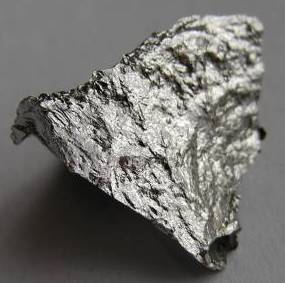 Two studies looked at manganese and found that high levels are associated with problems. Manganese is an essential trace mineral necessary for development, metabolism, the antioxidant system, and for normal brain and nerve function. Getting manganese through foods (e.g. nuts, seeds, whole grains) is beneficial, but ingesting large amounts through supplements or being exposed to high levels in some other way (such as polluted air) is associated with various health problems.
Two studies looked at manganese and found that high levels are associated with problems. Manganese is an essential trace mineral necessary for development, metabolism, the antioxidant system, and for normal brain and nerve function. Getting manganese through foods (e.g. nuts, seeds, whole grains) is beneficial, but ingesting large amounts through supplements or being exposed to high levels in some other way (such as polluted air) is associated with various health problems.
The first study found that high manganese in the diet (in mice) was associated with an increased risk of staph (Staphylococcus aureus) heart infection. The second study (done in East Liverpool, Ohio) found that exposure to consistently high levels of manganese in the air is associated with lower IQ scores in children. And why did the air the children were breathing have high levels of manganese? Because there was a nearby hazardous waste incinerator and a facility that handles manganese.
From Medical Xpress: Excess dietary manganese promotes staph heart infection
Too much dietary manganese—an essential trace mineral found in leafy green vegetables, fruits and nuts—promotes infection of the heart by the bacterium Staphylococcus aureus ("staph"). The findings, reported this week in the journal Cell Host & Microbe, add to the evidence that diet modifies risk for infection. The discovery also suggests that people who have excess levels of tissue manganese, including those who consume dietary supplements with high concentrations of the metal, may be at increased risk for staph infection of the heart.
Skaar and his colleagues studied the impact of dietary manganese on staph infection in a mouse model. Most of the mice that consumed a high manganese diet—about three times more manganese than normal—died after infection with staph. The investigators discovered that the animals on the high manganese diet were particularly susceptible to staph infection of the heart, which was a surprise, said Skaar, who is also professor of Pathology, Microbiology and Immunology.... The researchers found that excess manganese inactivates a key line of defense against pathogens: the innate immune system's reactive oxygen burst.
Staph is the leading cause of bacterial endocarditis (infection of the inner lining of the heart chamber and heart valves) and the second most frequent cause of bloodstream infections. Interestingly, some populations of people have both increased risk for staph infections, particularly endocarditis, and higher than normal levels of tissue manganese, Skaar noted. These populations include intravenous drug users, patients with chronic liver disease and patients on long-term intravenous diets.
From Medical Xpress: Higher manganese levels in children correlate with lower IQ scores, study finds
A study led by environmental health researchers at the University of Cincinnati (UC) College of Medicine finds that children in East Liverpool, Ohio with higher levels of Manganese (Mn) had lower IQ scores. The study analyzed blood and hair samples of 106 children 7 to 9 years of age from East Liverpool and surrounding communities, who enrolled in the study from March 2013 to June 2014.... The study found that increased Mn in hair samples was significantly associated with declines in full-scale IQ, processing speed and working memory.
Manganese is an element generally found in combination with iron and many minerals. It plays a vital role in brain growth and development, but excessive exposure can result in neurotoxicity. Manganese is used widely in the production of steel, alloys, batteries and fertilizers and is added to unleaded gasoline. Located in northeast Ohio along the Ohio River, East Liverpool has a demonstrated history of environmental exposures, with EPA records showing elevated levels of manganese concentrations since 2000.... all [air] monitors in East Liverpool had "consistently exceeded" health-based guidelines set by the agency.
 Manganese (Mn). Credit: Wikipedia
Manganese (Mn). Credit: Wikipedia
